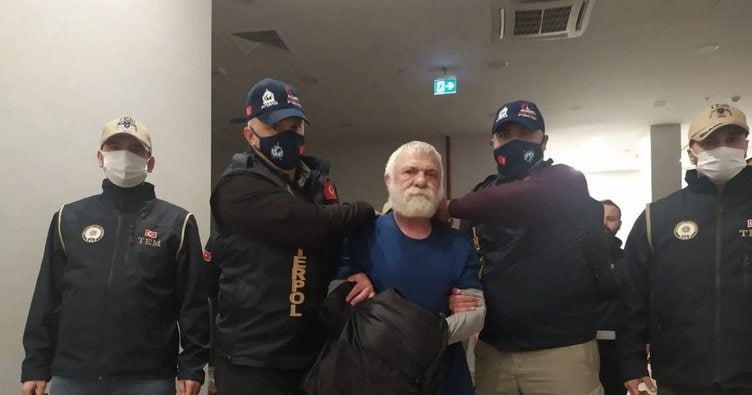A suspect in the 2002 murder of Turkish academic Necip Hablemitoğlu who was arrested by an Ankara court after Bulgaria extradited him in December has claimed that he has no connection to the killing.
Hablemitoğlu, an academic in the history department at Ankara University, was murdered outside his home in Ankara on Jan. 18, 2002.
Retired colonel Mustafa Levent Göktaş, a former member of the Turkish Armed Forces (TSK) elite Special Forces Command who faces charges of premeditated murder and membership in a criminal organization as part of an investigation carried out by the Ankara Chief Public Prosecutor’s Office, spoke to journalist Cengiz Erdinç from the Kısa Dalga news website on Thursday.
“As I have always said, I don’t have any connection with the Hablemitoğlu assassination. … There is no concrete evidence [proving that I do],” Göktaş said.
He added that the initial testimony of Nuri Gökhan Bozkır, a former military officer also accused of involvement in the murder of Hablemitoğlu, didn’t include him and that Bozkır only testified against him after he was detained by Turkey’s National Intelligence Organization (MİT) and spent 24 days in custody, implying a false confession.
Göktaş also said that Bozkır pointed to him as a target due to his personal animosity with him.
Bozkır, who was rendered from Ukraine by MİT in late January and arrested by a court on Feb. 8, admitted his role in the murder, saying in his deposition that he was informed in mid-November 2002 by a high-ranking military figure of the time that Hablemitoğlu was their target in an undercover mission and ordered to conduct reconnaissance around the academic’s house on Portakal Çiçeği Street.
Göktaş blamed the Gülen movement, a faith-based group inspired by US-based Turkish cleric Fethullah Gülen, for the killing.
The Turkish government accuses the Gülen movement of a failed 2016 coup and designates it as a terrorist group. The movement denies any involvement with the coup or any terrorist activity.
Despite the group’s denial, Ankara launched a massive crackdown on the movement, arresting tens of thousands.
“This is definitely a covert operation against me. … But I don’t know who targeted me or why. … I would say this assassination is the work of FETÖ,” Göktaş said, using a derogatory term used by the Turkish government to refer to the faith-based Gülen movement as a terrorist organization.
Hablemitoğlu was known for his research and books on the Gülen movement.
The Gülen movement has time and again been framed in conspiracy theories about Hablemitoğlu’s murder; yet after the 2016 coup attempt, these theories turned into an indictment that accuses the group of the murder.
Göktaş took part in the 1999 operation to catch Abdullah Öcalan, the leader of the outlawed Kurdistan Workers’ Party (PKK), listed as a terrorist organization by Turkey and much of the international community. More than 40,000 people, including 5,500 security force members, have been killed in four decades of fighting between the Turkish state and the PKK.
In 2009 Göktaş was arrested in the Ergenekon trials, in which a number of people, mainly military officers, were prosecuted for allegedly plotting a coup against the Justice and Development Party (AKP) government. Although he was sentenced to 20 years, nine months in prison in 2013, he was released in 2014 after spending only five years behind bars.



